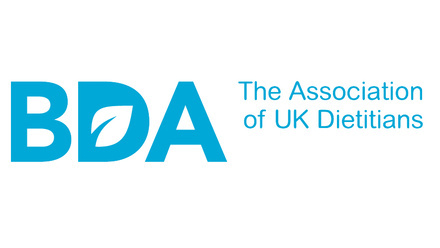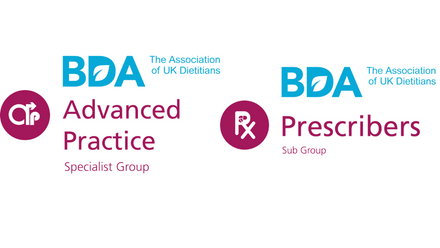The Department of Health and Social Care has opened a consultation on proposals to extend medicines responsibilities for paramedics, physiotherapists, operating department practitioners and diagnostic radiographers.
The consultation is open for 12 weeks and will close at 11:59pm on 28 October 2025.
You can respond using the online survey.
The BDA has prepared this guidance to support and encourage its members to submit a response to the consultation. The BDA will also be submitting a response to the consultation prior to the deadline.
What is the consultation about and why is it happening?
The consultation proposes changes to prescribing rights for four professions:
- Adding to the list of controlled drugs and prescription only medications paramedics can administer and supply.
- Increasing the number of controlled drugs physiotherapists can prescribe.
- Enabling operating department practitioners (ODPs) to supply and administer medicines using Patient Group Directions.
- Enabling diagnostic radiographers to become independent prescribers.
These issues were consulted on and ‘agreed in principle’ back in 2020 and 2021 - however they are now being re-consulted on to ensure the changes are made validly under the UK’s post-Brexit legislative framework.
Changes to prescribing rights requires alterations to the Human Medicines Regulations 2012 (HMR 2012), which is the main legislation governing UK medicine law. These regulations were originally drafted to implement and align with EU medicines law, meaning many of their provisions were tied to EU legal frameworks.
Following the UK’s withdrawal from the EU, the Medicines and Medical Devices Act 2021 (MMDA 2021) was introduced to give UK ministers and the devolved administrations clear powers to amend or update the UK’s medicines framework without needing to rely on EU mechanisms. This means that although the HMR 2012 still exists as the core regulations, the legal authority for amending them now flows from the MMDA 2021.
As a result, issues that were previously consulted on under the HMR 2012 framework, while the UK was still operating under EU-derived law, are now being re-consulted under the MMDA 2021. This ensures that changes are made using the UK’s own post-Brexit legislative powers and reflect a fully domestic process.
Why isn’t the government consulting on extending independent prescribing rights to dietitians as part of the consultation?
Dietitians were legally granted supplementary prescribing rights in 2016. After completing their qualification in prescribing, the first dietitians started using their supplementary prescribing rights in practice in 2017.
The government commissioned a joint evaluation into supplementary prescribing by dietitians and independent prescribing by radiographers by the University of Surrey. This research began in early 2019 and ended in April 2024. Challenges and uncertainty in practice caused by the COVID-19 pandemic required revisions to the study design and contributed to the overall timescale. Although the project concluded in 2024, the findings were not made publicly available until January 2025.
This research explicitly states that “We recommend urgent review for progressing the dietitian profession to independent prescribing, to facilitate greater optimisation of prescribing skills for advanced practice dietitians."
The BDA is working to make independent prescribing for dietitians a reality, and the recent publication of government-backed research supporting this ask will be immensely helpful to the campaign.
However, the issues currently being consulted on relate to issues previously consulted on and ‘agreed in principle’ in 2020 and 2021 – which have been delayed due to changes in the legislative instruments since the UK’s exit from the EU. During this period research was still being completed into dietetic supplementary prescribing, and therefore the Department was not seeking to make a change to dietetic prescribing rights.
Why does the BDA want members to respond to the consultation?
Every extension of prescribing rights for Allied Health Professionals helps to reinforce the case for dietitians to gain independent prescribing rights. It strengthens the wider evidence that non-medical prescribing improves patient outcomes and supports new models of care.
Showing support for colleagues in other professions is also vital. By backing their progress now, we help build momentum across AHPs - and when the time comes for dietitians to advance to independent prescribing, we hope to be able to call on that same collective support.
Tips for responding to the consultation
The majority of the consultation questions ask you to whether you agree that the named professions should receive an extension in their prescribing rights, and whether you believe the training and governance surrounding their prescribing is sufficient.
The BDA will be strongly agreeing that prescribing rights for these groups are appropriate and that the training and governance in place are robust.
You don’t have to write a long response to the consultation – indicating your support is sufficient if you are strapped for time. But providing comments can help to strengthen the argument and offer greater insight for civil servants.
As well as advocating for the extension of prescribing rights to the relevant professions, you can also highlight the need for the Department to consider extending the prescribing rights of dietitians.
In one of the free text boxes, you could add:
“I would also encourage the Department to act on the findings of the recent government-backed evaluation into dietetic supplementary prescribing, which recommended urgent progress towards independent prescribing rights for dietitians.”
If you are a prescribing dietitian, with experience of supplementary prescribing, you may wish to offer your personal experience of navigating limitations in prescribing rights, and how you believe an extension of prescribing rights can lead to better patient care and benefits for the health service.
If you want to add more depth to your written responses, consider integrating the following arguments:
Professionalism and regulation
AHPs are highly trained, regulated medical professionals. They should be trusted to prescribe within their scope of practice, applying the same standards of professionalism as other prescribers.
Consistency of safeguards
AHP prescribers are subject to the same legal, regulatory, and clinical governance frameworks as medical prescribers. If these safeguards are sufficient for doctors, nurses, and pharmacists, they are equally sufficient for non-medical prescribers.
Proven benefits
Evidence shows that non-medical prescribing improves patient access to timely treatment, reduces delays, and supports more efficient care pathways. Extending these rights is in line with the 10-Year Health Plan’s vision of empowering the workforce to deliver more timely, community-based, and preventative care
Workforce optimisation
Expanding prescribing responsibilities enables the NHS to make best use of the skills of the whole workforce. It allows professionals to practise at the top of their competence, reducing pressure on other parts of the system.
You can also take a look at what the affected professions have said about the consultation:
Paramedics: The College of Paramedics Urges Members to Respond to Government Consultation on Extending Medicines (A downloadable guidance document is available at the bottom of the page)
Physiotherapists: Have your say on expanded prescribing rights for physiotherapists (News article urging members to response to the consultation, with some added context)
Operating Department Practitioners: College of Operating Department Practitioners (Short statement on the consultation available on the homepage)
Diagnostic Radiographers: AHP Medicines Programme and Independent Prescribing for Radiographers (Background information on independent prescribing, including a timeline and FAQs)
The consultation is open for 12 weeks and will close at 11:59pm on 28 October 2025.
You can access the full consultation on the Department’s website: Proposals to extend medicines responsibilities for paramedics, physiotherapists, operating department practitioners and diagnostic radiographers - GOV.UK
And you can respond using the online survey.







